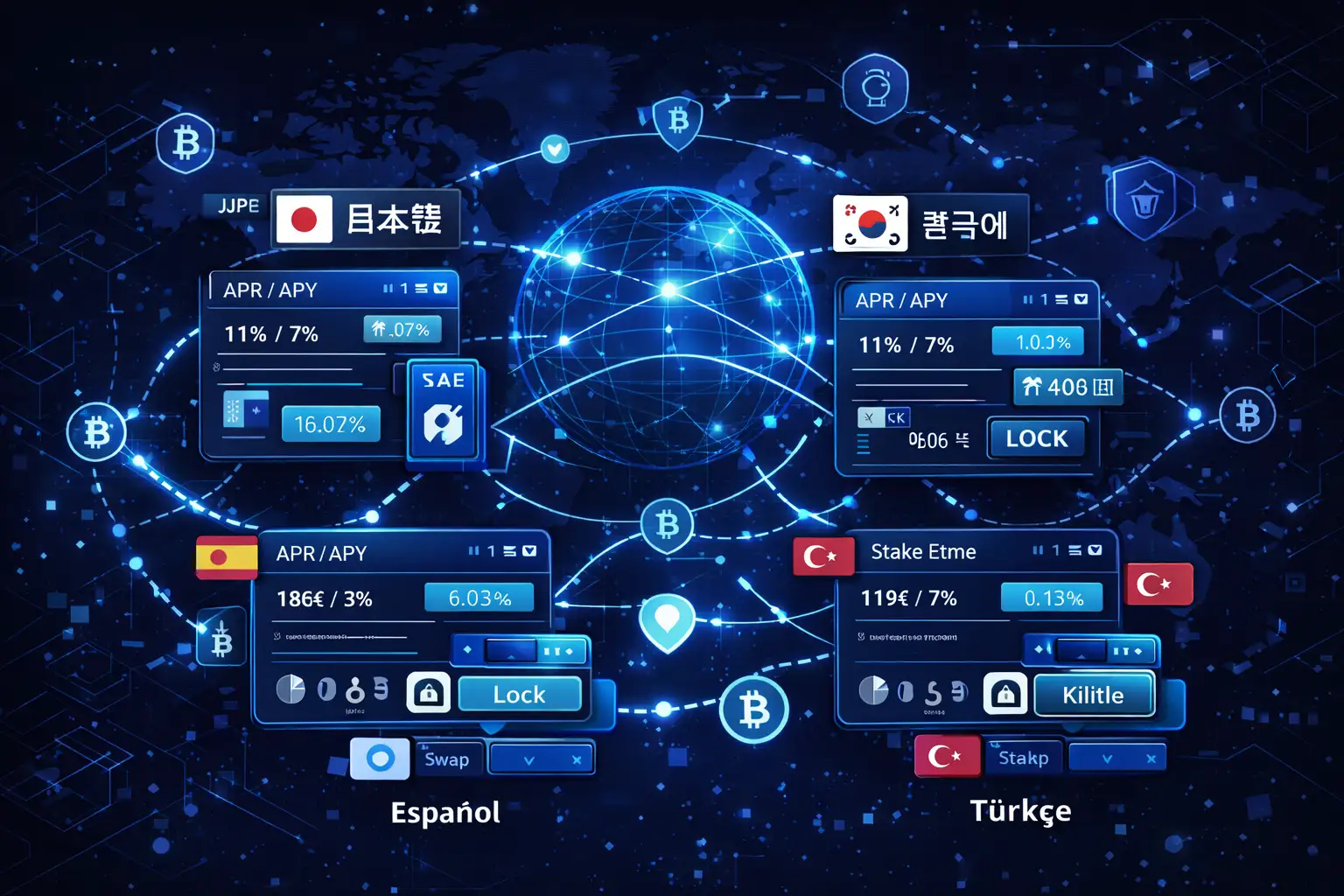The idea of “going worldwide” is more than just a slogan in a world that is becoming more interconnected; it is a strategic requirement for businesses and organizations of all kinds. In addition to extending one’s reach into new markets, globalization also has a significant localizing effect. Moreover, localization is the art of adapting products and content to suit the unique preferences and cultural nuances of diverse audiences worldwide.
By embracing localization, you’re not merely reaching out to a global audience; you’re forging meaningful connections with them. This transformative process involves translating not only words but also cultural sensibilities, norms, and values. It means understanding that a product’s success in New York might depend on different factors than its success in New Delhi. Lastly, localization empowers you to navigate linguistic and social landscapes, ensuring your message resonates effectively. In this globalized era, the importance of localization can’t be overstated.
Why Localization Matters In Business?
- Localization is a pivotal factor in business success in today’s global marketplace. It involves adapting products and marketing materials to cater to diverse cultural and linguistic preferences, and its significance cannot be overstated.
- First and foremost, accommodating different cultural and linguistic preferences is necessary in order to reach a bigger and more varied consumer base. In a world where more than 7,000 languages are spoken, knowing and embracing the cultural quirks of your target audience may make or break your business. By doing so, you explain your commitment to providing a customized and relevant experience, which encourages a sense of extensive and belonging among customers.
- Localization enhances customer engagement and trust. When consumers experience content that reflects their language and connects with their background, they are more likely to engage with it. This engagement leads to enhanced trust in your brand, as customers perceive your company as being watchful to their fondness – as trust heightens, so does loyalty.
- Statistics and case studies abound to underscore the success of localization strategies. For instance, McDonald’s mastered this art by adapting its menu to accommodate the dietary preferences of specific countries, resulting in a surge in sales. Another success story is Netflix, which localized its content and interface, leading to a global subscriber base exceeding 200 million. These cases illuminate how embracing linguistic diversity can unlock new markets. In the ever-evolving landscape of global business, localization is not just a matter of choice; it’s a strategic imperative.
Understanding The Difference Between Localization And Translation
Localization and translation are often used interchangeably, but they serve distinct purposes in the world of communication and content adaptation.
Translation involves converting the text from one language to another while striving to maintain the original meaning. It’s like swapping words, phrases, and sentences, preserving the core message, but not necessarily the nuances or cultural context. Translation is important for making content available to non-native speakers, but it doesn’t address all the factors required for smooth global communication.
On the other hand, localization goes beyond translation. It encompasses a comprehensive adaptation of content to a specific culture, region, or target audience. This process considers not only language but also cultural, social, and technical elements. It involves modifying images, videos, formats, and even adjusting content tone to align with local customs. Localization ensures that your content feels native and relatable, capturing the spirit of the target market.
Think of it as a bridge between your message and the hearts and minds of your audience. Localization is about cultural resonance, while translation is merely a linguistic transformation.
While translation is a crucial part of the localization process, localization is a holistic approach that goes far beyond language. To reach a global audience effectively, understanding this difference and investing in comprehensive localization is key to making your content truly resonate across borders. Additionally, localization encompasses not only linguistic translation but also regional nuances. This holistic approach ensures that your content authentically connects with diverse audiences worldwide.
What Are The Types Of Localization In Translation?
Many people ask, What does localization mean in translation? The simple answer is it involves adapting content to suit the contextual nuances of a specific target audience. Let’s understand several types of localization.
The localization process typically follows these key stages:
- Initial Analysis: This phase involves understanding the target audience, project scope, and specific requirements. It’s essential to determine the cultural, legal, and linguistic aspects relevant to the localization.
- Resource Gathering: Collect all the necessary materials, including the source content, glossaries, style guides, and any multimedia elements for localization.
- Translation: Professional linguists translate the content while considering cultural sensitivity and linguistic variations.
- Cultural Adaptation: Adapt graphics, images, and other media to align with local customs, preferences, and sensitivities.
- Quality Assurance: Rigorous testing and review to ensure that the localized content functions correctly and reads naturally in the target language.
- Feedback Loop: Gather feedback from native speakers and stakeholders for further refinements and clarity.
Additionally, when selecting a localization partner or tools, consider their experience, portfolio, and the industries they specialize in. Look for ISO and quality assurance certifications. For tools, choose those that support collaboration, translation memory, and project management features overall.
How Does Localization Work?
Localization is the art of adapting content or products to suit a specific target market, ensuring that they resonate culturally and linguistically. Here’s a captivating overview of the localization process, including key stages and tips for success.
- Initial Analysis: The journey begins with a thorough assessment of your project. What’s the target audience? What are their cultural nuances, preferences, and expectations? Understanding these specifics is crucial.
- Content Extraction: The next step involves extracting the content to be localized. This might include text, images, videos, or even software code further.
- Translation: Accurate translation is the heart of localization. Therefore, skilled linguists who are also native speakers of the target language ensure your message is not just understood but embraced.
- Cultural Adaptation: Beyond translation, content must be adapted to align with local customs, slang, or cultural sensitivities. This step adds authenticity to your content.
- Layout and Design: Graphic elements, formatting, and layout should be adjusted to accommodate different languages and scripts.
- Quality Assurance: Rigorous testing ensures there are no errors in the localized content. This involves linguistic review, functionality checks, and cultural accuracy assessment.
- Integration: The localized content is integrated back into your product or platform seamlessly.
- User Testing: To guarantee an exceptional user experience, it’s vital to have local users test the product or content. Their feedback can help refine the final version.
- Ongoing Support: After release, provide ongoing support for updates and maintenance to ensure continued success.
Localization And E-commerce: Boosting Sales Globally
Localization is the secret sauce that turbocharges e-commerce businesses on a global scale. It’s the art of tailoring your online store to resonate with local customers, and its impact is nothing short of astounding. By speaking your customer’s language, literally and figuratively, you break down barriers and build trust. This leads to higher sales and customer loyalty.
Personalized shopping experiences are the crown jewel of localization. When customers feel that your website understands their unique preferences and cultural nuances, they’re more likely to stay, browse, and make a purchase. This not only increases sales but also enhances the overall shopping experience.
Moreover, offering diverse payment options can’t be underestimated. Different countries have different payment preferences, and accommodating these preferences can be a game-changer. Whether it’s mobile wallets, local credit cards, or alternative payment methods, providing choices can significantly boost your global sales.
One of the most inspiring success stories is that of Amazon. Through meticulous localization, they’ve expanded their empire globally. Another standout is Alibaba, which leveraged localization to establish a firm presence outside China. Localization is the golden key to unlock global e-commerce success, ensuring your business thrives and resonates with customers worldwide.
Localization In Mobile Apps And Gaming
The secret weapon to winning on a global scale in mobile games and app development is localization. It takes more than just translating words to create an experience that connects with people from different cultural backgrounds. Your language-speaking menus and buttons, pictures that depict your world, and custom-fit gameplay. Games like “Pokémon Go” have mastered this technique, making Pikachu seem relatable to everyone. Apps like “WhatsApp” achieved the same goal by facilitating seamless connection. A simple software becomes a worldwide sensation, demonstrating that when technology speaks in the language of the heart, people listen.
Legal And Regulatory Challenges In Localization
- In today’s interconnected world, localization has become a pivotal aspect of global business strategies. While the benefits of tailoring products and content to specific markets are undeniable, navigating the intricate web of legal and regulatory challenges is no small feat. Let’s delve into the critical aspects of this complex landscape.
- Understanding the legal and regulatory considerations associated with localization is paramount. From data protection to content filtering, every nation has its own distinct set of laws. Moreover, serious penalties, harm to your brand’s reputation, and even legal action could follow from breaking these regulations. Therefore, businesses need to commit the time and money required to fully understand the nuances of each place in which they operate.
- Data protection and content regulations vary drastically from one country to another. The European Union’s stringent General Data Protection Regulation (GDPR) is a prime example of how seriously some nations take data privacy. On the other hand, China enforces a strong content censorship regime, where certain keywords and topics are carefully off-limits. To succeed globally, a company must meticulously align its practices with these diverse demands.
- Managing these legal complexities in international markets requires a proactive approach. Engaging local legal counsel, conducting thorough compliance audits, and developing internal policies to safeguard against potential legal pitfalls are all crucial strategies.
- Additionally, with the right combination of legal expertise, global awareness, and a commitment to compliance, businesses can thrive in diverse markets while navigating the intricate paths of international regulations.
Conclusion
Location emerges as the unsung hero in the complex dance of business. Success is shaped by a silent force. A desirable location can either serve as an engine for growth. With the ability to increase foot traffic and develop relationships, it is understandable why location is still crucial.
Additionally, the location you choose for your business can propel you to fame or keep you in obscurity, from busy metropolitan streets to peaceful suburban communities. It is obvious that being close to your target market, suppliers, and rivals is a powerful prescription for success.
FAQs
- Why is a localization strategy important?
A localization strategy is vital as it tailors offerings to match cultural and regional preferences, enhancing market reach and competitiveness. It enables businesses to connect with diverse audiences, navigate linguistic, cultural barriers, and establish a strong global presence, ultimately driving success in international markets.
- What does localization mean in business?
Localization in business involves adapting products, content, and strategies to suit the specific cultural, linguistic, and regulatory characteristics of a particular market. Keep in mind that this ensures that businesses can effectively connect with and serve their target audience in different regions and countries.
- What are the elements of localization?
Localization elements encompass language, cultural subtleties, legal conformity, currency, and product or service adaptation. These aspects are extremely vital for tailoring content and offerings to specific regions or markets, ensuring effective communication, legal adherence, and user engagement while considering local preferences and requirements overall.
- Why is localization important in marketing?
Localization in marketing is crucial for resonating with local audiences, enhancing engagement, brand perception, and boosting sales. By tailoring content and strategies to specific regions and cultures, businesses connect more effectively with customers, fostering a stronger market presence and better returns on marketing investments.
Subtitles

Professional and Accurate Subtitle Services for your Videos.
- Video subtitles specifically tailor-made for improving accessibility.
- Using highly experienced subtitlers with years of industry experience.
- Professionally written and expertly timed.
Translation

We help the world’s top companies translate their content in over 73 languages!
- We localize content for internet websites, games, travel, cryptocurrencies, and more
- Expand your global audience by adding different languages.
- We work only with qualified translators and experienced content creators
Audio translation

Ensuring full accessibility for Blind and visual impaired audiences.
- Visual descriptive events as they occur in the video.
- Working with top audio describers to perfectly describe what is happening on-screen
- Professional sound recording.














